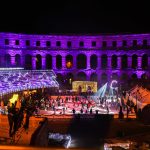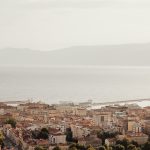ZAGREB, January 31, 2019 – Europe will have to do more about the resolving of conflicts and finding of peaceful solutions in its neighbourhood, Croatian Interior Minister Davor Božinović said on the Turkish-Syrian border on Wednesday, visiting two camps in which Turkey has taken in some of the nearly four million Syrian refugees fleeing from military conflicts in their country.
“In the future, Europe will have to do more about conflict solving, about finding peace agreements, because we have seen how much Europe is exposed if its immediate neighbourhood is… destabilised. Unless the situation here is under control, in Europe we can expect various events which we don’t want to see,” Božinović told Croatian reporters at a Turkish-Syrian border crossing near Kilis, Turkey.
He said Europe must utilise the strength it “realistically has” given that, economically, it is one of the most developed parts of the world. “Europe also has the resources. It’s just a matter of agreeing on their use and of how much European, not just narrow national goals, come first to all stakeholders in Europe.”
After visiting the refugee camps, Božinović reiterated that Turkey had invested a lot of effort to accommodate almost four million people from Syria. “The logistic support is at a very high level. There are schools, religious facilities, different courses are being organised,” he said, adding that in the two camps he visited more than 5,000 children were born in the past few years.
He said the lasting solution was for the people to return to their homes and that he hoped “reason will prevail and that the EU will play a stronger part.” “If Europe doesn’t play a strong, active role in conflict prevention, we will deal with such crises in future too and that’s in nobody’s interest.”
“In several weeks a delegation from our Interior Ministry will arrive in Turkey and choose another 100 people to come to Croatia. It is important, however, not to make any wrong moves in these integration efforts, because all the failures of the integration policy in the European union came back to haunt us through very radical events in recent history,” Božinović said.
He told the press in Turkey that in the 1990s Croatia had one million refugees, mostly from Bosnia and Herzegovina, but also from other parts of Croatia. He said that he had seen efforts made by all parties involved and a great amount of humanity. Božinović said that regardless of the fact that Turkey was doing all that it could, there was no place like home.
Božinović visited the two refugee camps outside Nizip and Kilis, each accommodating approximately 4,000 people, and held talks with camp administrators and refugees.
Most of refugees that the Croatian media talked to there want to go back to Syria but have no means to do that.
More news on the migrant crisis can be found in the Politics section.







